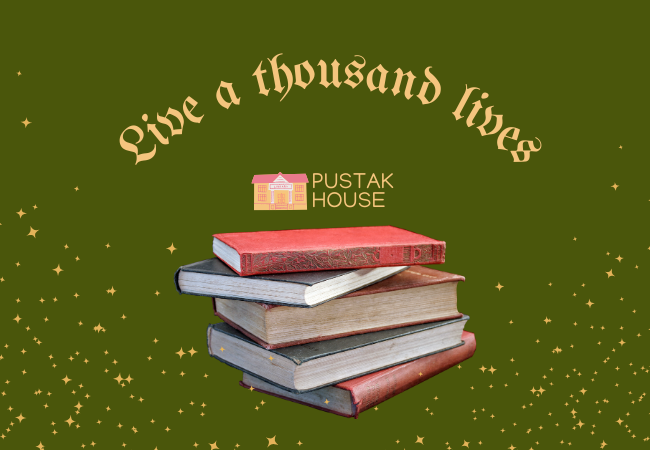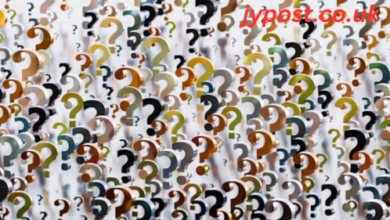Ever found yourself caught between the pages of a gripping novel and https://frontalrevista.com.ar/literatura/leelo-antes-de-verlo/ the anticipation of its cinematic adaptation? Reading a book before watching its movie version can be a truly enriching experience. In this guide, we’ll explore why diving into the literary world before hitting the theaters or streaming services can enhance your overall enjoyment and understanding of both mediums.
The Magic of Literature
There’s an undeniable magic in literature that movies often struggle to capture. When you read a book, you immerse yourself in a world crafted purely from words. Your imagination is the director, creating vivid landscapes, complex characters, and intricate plots. Each reader experiences the story uniquely, building a personal connection with the narrative.
In contrast, movies present a visual representation, which, while spectacular, often leaves little room for personal interpretation. The rich, detailed descriptions in books allow for a depth of imagination that is rarely matched by their cinematic counterparts.
Understanding the Author’s Vision
Reading the book gives you a deeper understanding of the author’s vision. Authors meticulously craft their stories, paying attention to character development, intricate plot details, and subtle nuances that may not translate well to the screen.
For instance, a character’s internal monologue can provide significant insight into their motivations and personality. These insights often get lost in movie https://frontalrevista.com.ar/literatura/leelo-antes-de-verlo/ adaptations, which rely heavily on visual and auditory storytelling. By reading the book, you gain a comprehensive understanding of the story that enriches your viewing experience.
Comparative Analysis: Books vs. Movies
Pros and Cons of Each Medium
Books and movies each have their own strengths and weaknesses. Books allow for detailed world-building and character development, offering an intimate glimpse into the characters’ minds. Movies, on the other hand, provide a visual spectacle and a condensed version of the story that can be more accessible.
Case Studies of Successful Adaptations
Some adaptations manage to capture the essence of their source material brilliantly. For example, “The Hunger Games” series succeeded in translating the intense, dystopian atmosphere of the books onto the screen. However, even the most successful adaptations often leave out significant details or alter elements to fit the cinematic format.
Enhancing the Viewing Experience
When you’ve read the book, watching the movie becomes a game of spotting differences and appreciating adaptation choices. You can better understand why certain elements were changed or omitted and how those choices impact the story. This analytical approach can lead to a deeper appreciation of the adaptation as a creative work in its own right.
The Impact on Popular Culture
Literature has a profound influence on popular culture, often serving as the foundation for blockbuster movies. Iconic adaptations like “To Kill a Mockingbird” and “Pride and Prejudice” have left an indelible mark on both the literary and cinematic worlds, showcasing the enduring power of storytelling.
Case Study: Harry Potter Series
The “Harry Potter” series is a prime example of a beloved book series turned into a successful film franchise. While the movies captured the magical world of Hogwarts, they inevitably left out numerous details that fans cherished in the books. Key characters and subplots were minimized or excluded, leading to mixed reactions from fans.

Case Study: The Lord of the Rings
J.R.R. Tolkien’s “The Lord of the Rings” trilogy is another excellent example. Peter Jackson’s film adaptations were widely praised for their faithfulness to the source material and their stunning visual effects. However, even these celebrated movies had to make significant cuts and changes to fit the lengthy narratives into a manageable runtime.
The Role of Fandoms
The dynamics between book and movie fandoms can be fascinating. Book fans often hold the original material in high regard and can be critical of movie adaptations. Meanwhile, movie fans who haven’t read the books might appreciate the story differently. This can lead to lively discussions and debates within the community, enriching the overall fan experience.
How Adaptations Affect Book Sales
Interestingly, movie adaptations often boost book sales. When a movie version of a book is announced or released, there’s typically a spike in book sales as new readers want to experience the original story. This trend underscores the symbiotic relationship between books and their adaptations.
Challenges in Adaptation
Adapting a book into a movie is no easy feat. Filmmakers https://frontalrevista.com.ar/literatura/leelo-antes-de-verlo/ face the challenge of condensing complex narratives into a limited timeframe while maintaining the essence of the story. Balancing the expectations of loyal fans with the need to create a compelling cinematic experience requires careful consideration and creativity.
Tips for Readers
If you prefer to read the book before watching the movie, here are some tips:
- Take Your Time
- Enjoy the book at your own pace. Absorb the details and savor the experience.
- Note the Differences:
- Pay attention to the elements that stand out to you in the book. These can be focal points for comparison later.
- Discuss with Others:
- Join book clubs or online forums to share your thoughts and predictions about the adaptation.
Tips for Viewers
For those who love watching movies, here’s how to appreciate adaptations:
- Keep an Open Mind
- Understand that movies and books are different mediums with unique strengths.
- Watch First, Read Later: If you’re more of a visual person, watch the movie first, then read the book to gain a deeper understanding.
- Engage with Both: Enjoy the story in both forms. Compare and contrast to enhance your appreciation of the narrative.
Future of Adaptations
The future of adaptations looks promising, with numerous upcoming projects generating excitement. As technology advances, filmmakers have more tools at their disposal to create faithful and visually stunning adaptations. Keep an eye out for new releases, and consider diving into the books that inspire them.
Conclusion
Reading a book before watching its movie adaptation can significantly enhance your enjoyment and understanding of both mediums. It allows you to appreciate the depth of the story, the intricacies of the characters, and the creative choices made in bringing the narrative to the screen. Whether you’re a die-hard bookworm or a movie buff, exploring both forms of storytelling can offer a richer, more immersive experience.
FAQs
1. Why is it better to read the book before watching the movie?
Reading the book first allows you to fully immerse yourself in the https://frontalrevista.com.ar/literatura/leelo-antes-de-verlo/ author’s vision and understand the nuances of the story. It also enhances your appreciation of the movie adaptation and the creative choices made by filmmakers.
2. Are there any adaptations that are better than the books?
While it’s rare, some adaptations are considered as good as or even better than the books. Examples include “The Godfather” and “The Shawshank Redemption,” which are often praised for their exceptional storytelling and cinematic execution.
3. How do filmmakers choose which parts of the book to include in the movie?
Filmmakers prioritize key plot points, character development, and themes that are essential to the story. They also consider the movie’s runtime and the need to create a cohesive, engaging narrative for the audience.
4. What are some upcoming book-to-movie adaptations?
Upcoming adaptations include “Dune: Part Two,” “The Ballad of Songbirds and Snakes” (a prequel to “The Hunger Games”), and “The Night Circus.” Keep an eye out for these exciting releases!
5. How can I find out if a movie is based on a book?
You can usually find this information in the movie’s credits, on official websites, or through a quick online search. Additionally, many promotional materials and reviews mention if a movie is based on a book.




